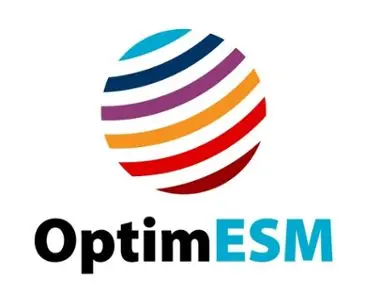OptimESM — Optimal high resolution Earth system models for exploring future climate change
New and better knowledge is needed to support sustainable decision-making on ongoing climate change and avoiding tipping points. OptimESM (and its new Earth system models (ESMs) will provide decision-makers with just that.
OptimESM will provide new and policy-relevant knowledge on the consequences of reaching or exceeding different levels of global warming, including the risk of rapid change in key Earth system phenomena and the regional impacts arising both from the level of global warming and the occurrence of abrupt changes.
The new climate models will combine high resolution with an unprecedented description of key physical and biochemical processes. OptimESM will develop new emission and land-use scenarios extending to the year 2300, including ones that realise the Paris Agreement, and others that temporarily or permanently overshoot the Paris targets. Using these scenarios, OptimESM will deliver long-term projections that will increase our understanding of the risk of triggering potential tipping points in the climate system regarding ice sheets, sea ice, ocean circulation, marine ecosystems, permafrost and terrestrial ecosystems.

Project Goals
The primary goal of OptimESM is to develop the next generation of ESMs, bringing together increased model resolution and process realism, and to deliver long-term climate projections that better support policy and societal needs, providing guidance on regional climate change at different levels of global warming, the risk of abrupt Earth system changes at these warming levels and the regional impacts arising from such events.
This primary goal will be realised through the following objectives:
Objective 1: To develop the next generation of ESMs through an optimal combination of increased model resolution and representation of key physical and biogeochemical processes, leading to the best exploitation of available and future computing resources
Objective 2: To exploit new and existing observations to evaluate and constrain ESM simulations, including the provision of uncertainty estimates, identification of abrupt climate change indicators and an improved understanding of processes underpinning these abrupt changes.
Objective 3: To develop and deliver new policy relevant emission scenarios extending to 2300, ready for use in ESMs including ones based on current policies and the most recent Nationally Determined Contributions (NDCs), ones that realise the Paris Agreement, that temporarily overshoot the Paris targets and that stabilise at different levels of global warming.
Objective 4: To deliver new ESM projections beyond 2100 sampling the range of new emission scenarios.
Objective 5: To increase our understanding of potential tipping points in the Earth system, such as ice sheets, Arctic sea ice, ocean circulation, permafrost, and marine and terrestrial ecosystems, and improve our ability to attribute such events to driving processes and levels of global warming.
Objective 6: To deliver high-resolution information on the impact of abrupt climate change and different levels of stabilized global warming on regional climate change, including extreme events.
Objective 7: To ensure a strong European contribution to the international research agenda, including the 7th Coupled Model Intercomparison project (CMIP7) and the WCRP Lighthouse activities Safe Landing Climates and Explaining and Predicting Earth System Change.
Objective 8: To provide policy guidance on the feasibility of realising the Paris climate targets and the consequences of overshooting these targets, including regional impacts and the risk of triggering Earth system tipping points.
About the project
Role of SMHI
OptimESM is led by the Rossby Centre at SMHI. The coordinator is SMHI's climate scientist Torben Königk.
Project partners
OptimESM, brings together 19 institutions from 10 European countries.
Funding
OptimESM has received funding from the European Union’s Horizon Europe research and innovation programme under grant agreement No101081193.
Timeline
OptimESM will run from January 2023 to December 2027.

